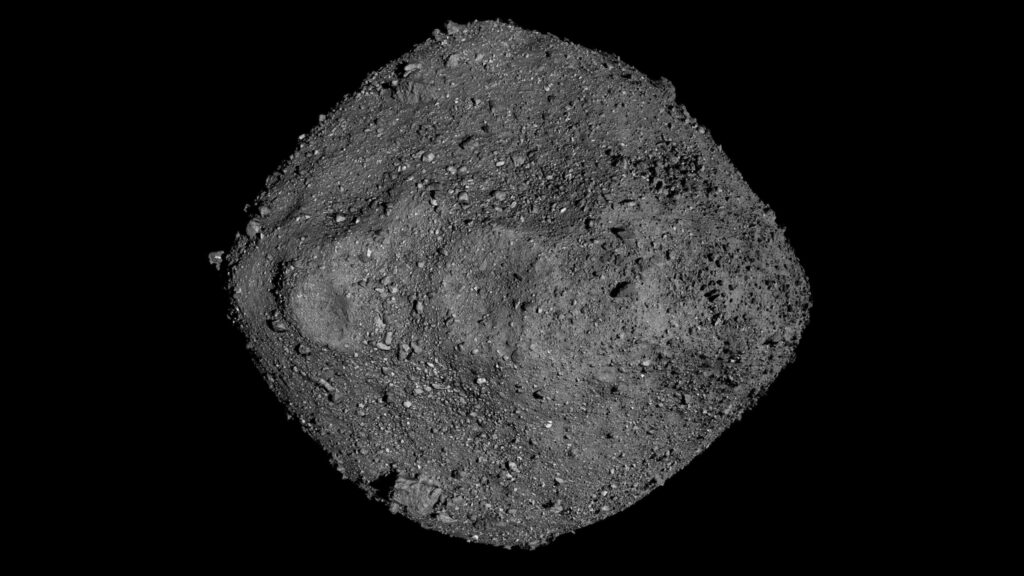Analysis of the data collected by the OSIRIS-REx spacecraft revealed an unusual property of the surface of the asteroid Bennu. It is something resembling a pit filled with plastic balls.
Unusual asteroid Bennu
The asteroid Bennu is a 500-meter body with an approximately spherical shape. Astronomers have long suspected that, like many small asteroids, it is a “garbage heap”— a cluster of debris formed during the destruction of a larger body and held together by the forces of gravity.

But when the OSIRIS-REx reached Bennu in 2018, scientists were still surprised. They expected Bennu to have a smooth surface resembling a sandy beach. Instead, it turned out that it was covered with many large stones. Further, OSIRIS-REx discovered periodic ejections of rocks from the surface of Bennu, which literally fly into space.

And finally, during the operation to take a sample of asteroid matter at the end of 2020, the nitrogen jet released by OSIRIS-REx literally “exploded” the surface of Bennu, knocking out a huge amount of material. Later it turned out that because of this, an 8-meter crater formed on its surface.
Properties of the Bennu surface
On July 7, the journals Science and Science Advances published articles devoted to the structure of Bennu. After studying the data collected by OSIRIS-REx, the scientists came to the conclusion that the surface of Bennu is very loose: its density is only 0.5 – 0.7 g/ cm3. Due to the extreme low gravity, compression of the upper layers does not occur. This means that if during the sampling of the substance Bennu OSIRIS-REx did not turn on the engines and did not start takeoff, it would simply “drown”. The researchers figuratively compared this property of the asteroid’s surface with a pit filled with plastic balls.
The scientists also managed to determine the mass of the Bennu substance sample collected by OSIRIS-REx. It is 250 grams. Preliminary analysis shows that the asteroid contains organic matter and minerals resulting from the interaction of the primary matter of the Solar System with water.
A sample of Bennu’s substance collected by OSIRIS-REx will be delivered to Earth in September 2023. After dropping the capsule, the spacecraft will embark on an extended mission, the purpose of which is to study the asteroid Apophis, once considered the most dangerous in the Solar System.
According to https://www.nasa.gov
Follow us on Twitter to get the most interesting space news in time
https://twitter.com/ust_magazine

